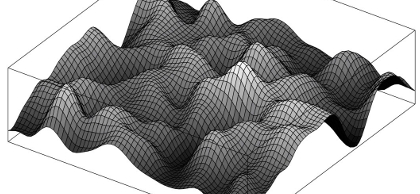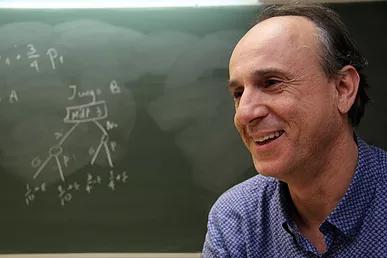Events
-

Description
Research Workshop celebrating the scientific career of Prof. José María Sancho
Organizers
UB -

Organizers
UPF -

Speaker
James Sharpe (EMBL, Barcelona)Description
Dramatic progress has been made over the last 2 decades in how we access key types of biological data - in particular sequence-based data on genomic information. However, integrating this data to produce dynamic and predictive models of higher level biological phenomena (e.g. development, regeneration, homeostasis and cancer) has been limited. Questions about tissues and organs are still most often tackled at the molecular or cellular level. We tend to ask how individual progenitor cells respond to signals from their “environment”, and thus to focus on signal transduction pathways, gene regulatory events, and epigenetic memory. But an organ is more than just an environment for cells to "act" in – it is an integrated whole, a coherent community, with cells in constant genetic, chemical and mechanical communication with each other. New technical advances such as organoid culture, 3D mesoscopic imaging, multicellular omics and computer modeling are helping us to go beyond the molecular and cellular level, to understand multicellular feedback loops, long-range signalling networks and emergent collective decisions, and thus to see tissues and organs as systems in their own right. Modelling these higher-level processes in vitro and in silico will help us understand these complex processes at a deeper level, and I will discuss our own attempts in this direction, to understand one example of complex organogenesis – namely mammalian limb development.
-

Speaker
Juan MR ParrondoDescription
I will review our past work on the quantitative connection between dissipation or entropy production and irreversibility, as measured by the distinguishability between forward and backward trajectories.
In the last part of the talk, I will present some recent work on the application of those ideas to the estimation of the entropy production and ATP consumption in molecular motors, kinetic networks, and the motion of cilia in era cells when the observer has only access to a restricted number of variables.
-
Speaker
Michele StarniniDescription
The temporal dimension of social systems is fundamental in shaping the topological properties of the corresponding networked representation, and it deeply impacts the behaviour of dynamical processes running on top of them, such as epidemic spreading or information diffusion. In this talk I will give an overview of some recent works addressing the role of the temporal dimension in social network modelling. First, I will focus on a data-driven approach, by considering empirical face-to-face interaction networks, recorded in different social gatherings. I will present a simple model, based on the social attractiveness of individuals, able to quantitatively reproduce most statistical features of these human contact networks. The importance of the network's dynamics will be also illustrated
by analysing the behaviour of simple diffusion processes on top of empirical time-varying networks. The case of social networks formed by multiple layers, representing different kinds of social interactions, is particularly interesting in order to show the effects of temporal correlations between layers on coupled spreading processes.
Finally, I will briefly present an analytical approach in modelling the bursty nature of human dynamics. I will focus on two examples: temporal network modelling that incorporates the burstiness of social interactions, and the Non-Markovian dynamics of epidemic spreading processes. Our contributions in social dynamics modelling shed light on the temporal features of human interactions, and may be of interest to researchers in the broad filed of time-evolving complex systems.
